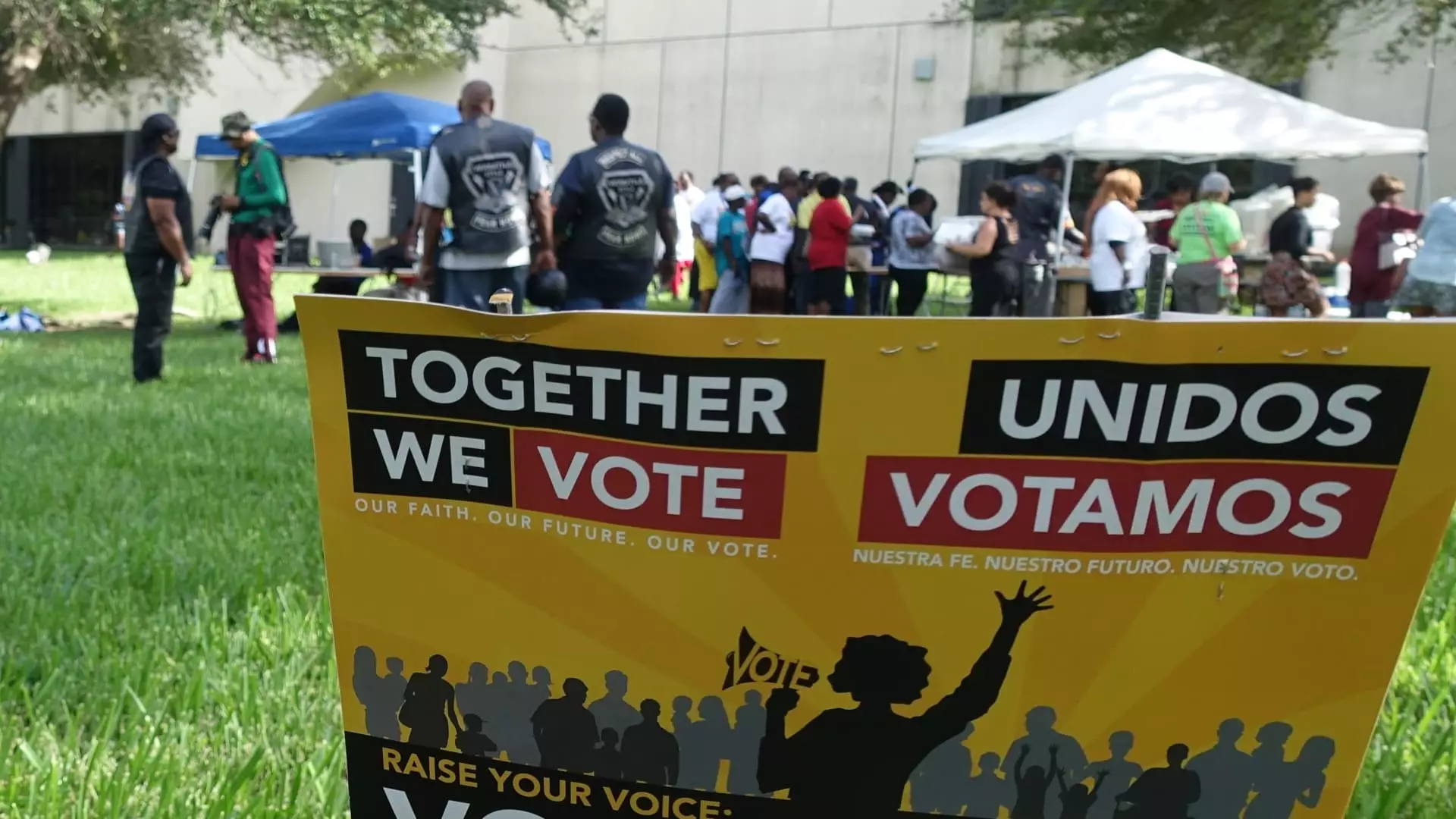As the political landscape heats up in the lead-up to the next election, the Harris campaign is mobilizing an extensive initiative aimed at connecting with Latino voters. This significant outreach effort coincides with National Hispanic Heritage Month and is poised to play a crucial role in determining electoral outcomes in key states where Latino populations are growing. With early voting just around the corner in battleground states such as Arizona, Nevada, and Pennsylvania, the urgency for sufficient engagement with these communities cannot be overstated.
The effort is not merely about the numbers; it also signifies a strategic pivot towards culturally resonant messaging. Vice President Kamala Harris is set to deliver a keynote address at the Congressional Hispanic Caucus Institute’s annual conference, further solidifying the campaign’s commitment to addressing the specific needs of Latino constituents. This proactive approach includes not just political speeches but also the participation of state leaders like Minnesota Governor Tim Walz to emphasize the importance of the Latino vote.
Understanding the vital cultural nuances in the Latino community is essential for effective voter outreach. Surrogates involved in the campaign are adopting innovative strategies by attending popular events such as boxing matches and baseball games. For instance, some notable figures are expected to attend the highly anticipated boxing bout between Canelo Alvarez and Edgar Berlanga, showcasing a campaign eager to engage constituents in settings that resonate with their everyday interests.
Additionally, the campaign aims to reach the Latino community through impactful advertising. With the rollout of mobile billboards featuring messages tailored for Latino voters, the Harris campaign is strategically targeting venues and events that will capture attention and spark conversations about the significance of civic engagement.
The Harris campaign’s investment in Spanish-language radio is a notable component of this outreach, with an unprecedented budget of $3 million earmarked for ads from September 15 to October 15. This initiative not only underscores the campaign’s financial commitment but also highlights a growing recognition of the need for targeted messaging that resonates within the Latino community. By collaborating with influential radio personalities and tapping into sports-themed shows, the campaign seeks to engage audiences where they are most comfortable and receptive.
Moreover, the campaign’s realignment toward grassroots organization cannot be ignored. With initiatives like a “call-a-thon” aimed at reaching half a million voters, the Harris campaign is optimally structured to harness the power of community networks. The importance of interpersonal communication within the Latino community cannot be understated; many voters turn to friends and family for guidance on electoral decisions. As such, fostering “trusted messengers” is a wise tactic in combating the spread of misinformation, especially on popular platforms like WhatsApp.
Fundamentally, the Harris campaign recognizes the diverse perspectives within the Latino electorate. Polling data suggests a clear divide between Spanish-speaking and English-speaking households regarding support for Harris versus former President Trump, which should inform future outreach efforts. Over 60% of eligible Latino voters from Spanish-speaking backgrounds expressed intention to support Harris, while English-dominant households showed a narrower preference. By recognizing these nuances, the campaign can create more effective strategies that speak to the unique experiences of various segments of the Latino community.
The involvement of prominent Latino leaders in key states also signals a trend toward amplified representation and inclusion in electoral participation. From Health and Human Services Secretary Xavier Becerra to Education Secretary Miguel Cardona, these figures bring credibility and relevance to ongoing dialogues about policy issues that affect Latino communities, further engaging voters with tangible connections to their government.
The Harris campaign’s endeavor to engage Latino voters is not merely a tactical move; it is a recognition of the vital role that this demographic will play in shaping future policies and political landscapes. With a multi-faceted strategy that incorporates cultural elements, community voices, and targeted outreach, the initiative showcases a commitment to fostering an inclusive dialogue. As National Hispanic Heritage Month unfolds, it serves as both a celebration of Latino culture and a critical moment for mobilizing voters. Only time will tell how effective these tactics will be, but the emphasis on reaching out to Latino voters cannot be underestimated in its potential impact on both local and national levels.



Leave a Reply